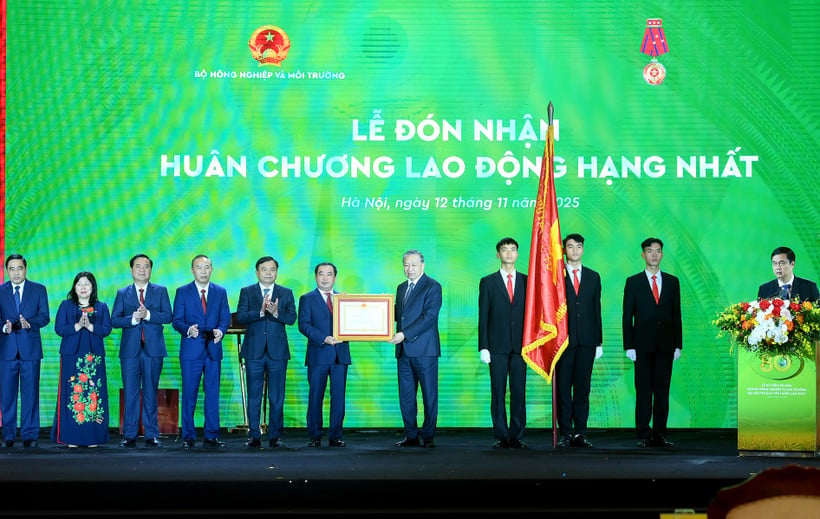
Attending the ceremony were comrades: Former General Secretary Nong Duc Manh; former Politburo member, former President Truong Tan Sang; Politburo member, Prime Minister Pham Minh Chinh; former Politburo members: former Prime Minister Nguyen Tan Dung; former National Assembly Chairman Nguyen Sinh Hung; former National Assembly Chairwoman Nguyen Thi Kim Ngan; former Standing member of the Secretariat Phan Dien; former Standing member of the Secretariat Tran Quoc Vuong.
Also attending were Politburo members: Phan Dinh Trac, Secretary of the Party Central Committee, Head of the Party Central Committee's Internal Affairs Commission; Nguyen Van Nen, Standing Member of the Party's XIV National Congress Document Subcommittee; Nguyen Xuan Thang, Director of the Ho Chi Minh National Academy of Politics, Chairman of the Central Theoretical Council; Nguyen Hoa Binh , Permanent Deputy Prime Minister; Party Central Committee members, leaders of the Party, State, central departments, branches, organizations, local leaders and international guests.

Delivering a speech reviewing the tradition, comrade Tran Duc Thang, member of the Party Central Committee, Minister of Agriculture and Environment, affirmed that the past 80 years have been a glorious and proud journey. Through war, reconstruction and renovation, the agricultural sector has become the pillar of the national economy, turning Vietnam from a country with food shortages into one of the world's leading agricultural exporters.
From innovation policies such as Contract 100, Contract 10, to the 1993 Land Law and the New Rural Development Program, Vietnam's agriculture has continuously grown, making important contributions to growth, social stability and sustainable poverty reduction. The agricultural and environmental sectors have continuously improved their institutions, laws and development strategies, becoming the pillars of sustainable development, linking resource management, environmental protection with green growth and climate change response.
In 2025, the merger of the Ministry of Agriculture and Rural Development with the Ministry of Natural Resources and Environment into the Ministry of Agriculture and Environment will mark a historic milestone for the sector, demonstrating the strategic vision of the Party and State to manage, exploit and use national resources more effectively, meeting the requirements of rapid and sustainable development in the new era.
After the merger, the ministry quickly reorganized, stabilized the apparatus, and ensured smooth operations. Patriotic emulation movements continued to spread strongly, creating a vibrant atmosphere, encouraging the entire sector to overcome difficulties and successfully complete assigned political tasks.
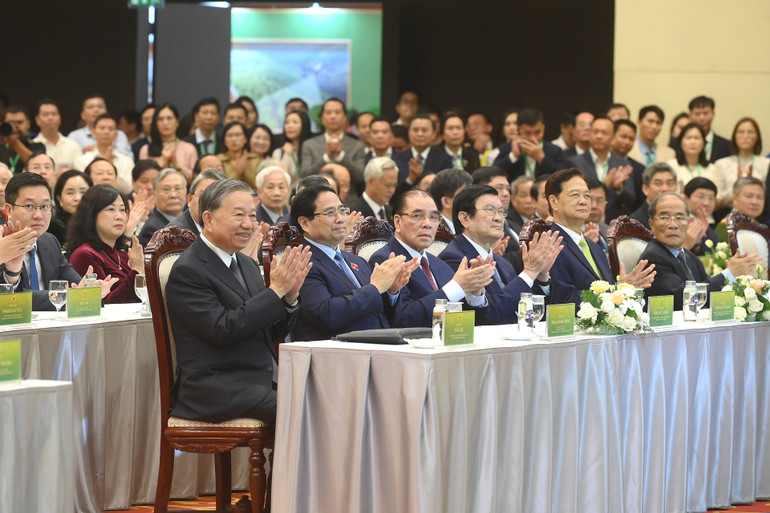
In recognition of the industry's outstanding achievements and great contributions to the country's socio-economic development, on behalf of the Party and State leaders, General Secretary To Lam awarded the First Class Labor Medal to the Ministry of Agriculture and Environment.
Speaking at the ceremony, General Secretary To Lam affirmed that the agricultural and environmental sectors have a special strategic position, as they are the sectors that manage the country's vital resources. Every inch of land, river, forest, and sea is not only a space for survival, development, and livelihood, but also an element of national sovereignty. Developing agriculture and protecting resources and the environment are not simply economic tasks, but also political, cultural, social, security, and defense tasks.
The General Secretary emphasized that over the past 80 years, the agricultural and environmental sectors have accompanied the nation, becoming the pillar of the economy, the foundation of livelihoods and now an important factor in the development and transformation of the country. These achievements are the crystallization of the intelligence, efforts and enthusiasm of generations of Vietnamese cadres, workers, farmers, intellectuals and businesses, along with the close leadership and direction of the Party and State.
However, besides the very proud results, we must also face the reality that the agricultural and environmental sectors are facing many difficulties and major challenges, intertwined between economic development, resource management and environmental protection.
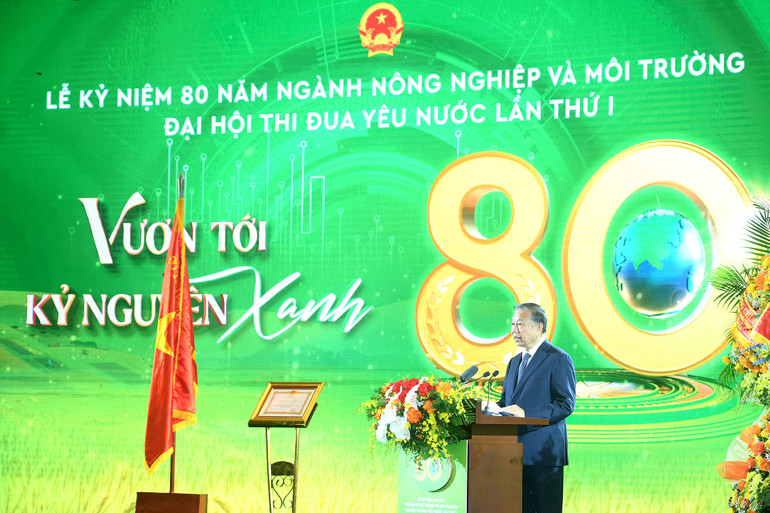
Pointing out the difficulties and challenges, the General Secretary stated: Natural resources are rapidly depleting. Land is still being used wastefully, fragmentedly, and without overall planning. Environmental pollution, especially air pollution, wastewater, and waste in large cities, industrial zones, and craft villages, is becoming more and more complex. The impacts of climate change and extreme natural disasters are increasingly severe.
Agriculture is still developing unsustainably, with low added value. Infrastructure, public services, and social welfare in rural areas are not yet synchronized; in some places, there are signs of "leaving agriculture and homeland", lacking successor forces. There are still many shortcomings in institutions and management capacity. Data on resources and agriculture have not been fully digitized and connected; agricultural extension and public services have not reached the grassroots level; science, technology, and innovation have not become the main driving force...
Challenges related to resources, environment, climate change, and inherent limitations of agriculture and rural areas are becoming major bottlenecks hindering the goal of rapid and sustainable development.
The General Secretary requested the agricultural and environmental sectors to continue to innovate their thinking and take more drastic and effective actions. First of all, the sector must accelerate the summary and full institutionalization of the Party's policies on agriculture, farmers, rural areas; on resource management, environmental protection, and climate change response into the legal system. Continue to perfect the legal system on land, water resources, minerals, and environmental protection; ensure synchronization, stability, feasibility, and harmony of State-people-enterprise interests.
Land must continue to be identified as a special national asset, owned by all people and managed by the State; used for the right purposes, effectively, publicly, transparently, without loss, corruption or disguised privatization.
Effectively implement Resolution No. 57-NQ/TW on the development of science, technology, innovation and national digital transformation in the fields of agriculture and environment. Build a synchronous digital data system on land, water resources, forests, hydrometeorology, biodiversity; develop digital maps of sectors and a unified land database nationwide. Bring science and technology into the heart of agricultural production, from plant varieties, livestock, biotechnology, automation, to traceability, logistics, and digital commerce.
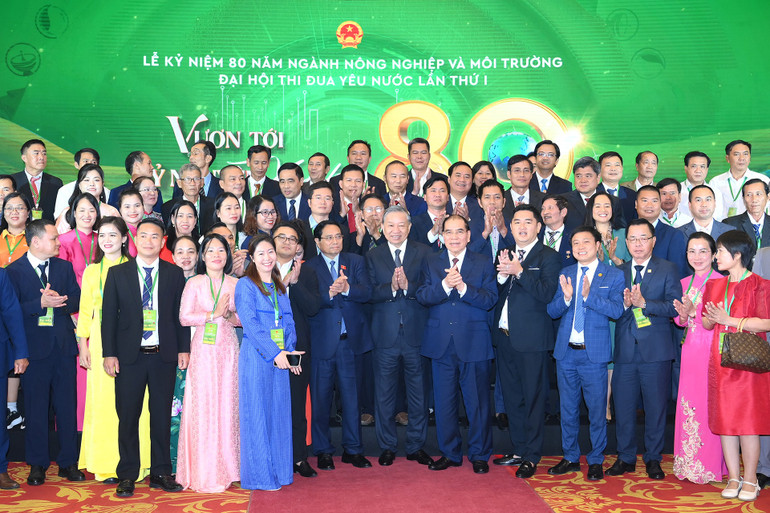
and delegates attending the celebration. (Photo: DANG KHOA)
Emphasizing the issue of planning, managing and effectively using resources, protecting the living environment, the General Secretary requested strict management, fair regulation, restoration of river, lake and groundwater ecosystems, and pollution control. Proactively adapting to climate change, especially in the Mekong Delta, North Central, Central Highlands, and coastal areas. Restoring protective forests, mangrove forests, and conserving biodiversity. Resolutely handling environmental pollution hotspots in large cities, industrial zones, craft villages, and river basins.
The General Secretary directed to thoroughly handle the "bottlenecks and bottlenecks": complicated administrative procedures; overlaps in land, resource and environmental management; difficulties in accessing capital, land, science and technology. Promote decentralization and delegation of power associated with resource allocation and power control. Mobilize social resources, enterprises, cooperatives, and the private economy to invest in green agriculture, processing industry, renewable energy, and circular economy.
Shifting agriculture from breadth to depth; developing a model new rural ecosystem with synchronous infrastructure, rich cultural life, clean, civilized environment, security and order.
The Ministry of Agriculture and Environment must more quickly improve its organization and operate smoothly, effectively and efficiently. Build a team of honest, professional, dedicated, impartial and responsible civil servants. Strengthen training and fostering of cadres and experts specializing in agricultural economics, natural resources, environment and climate; especially pay attention to grassroots cadres. Agricultural extension work must be deeply innovated, not only propaganda but must be an "extended arm" of science and policy to each field and each farmer's household.
Believing that the agricultural and environmental sectors will continue to uphold their traditions, make the greatest efforts, and make worthy contributions to the country's overall success, the General Secretary called on all cadres, civil servants, public employees, workers in the sector, scientists, businessmen, and farmers nationwide to unite and be more creative, successfully achieve the set goals, improve the material and spiritual life of the people, and make increasingly greater contributions to the country's rapid and sustainable development.
On this occasion, the agricultural and environmental sector launched the emulation movement for the 2025-2030 period with the motto "Tradition - Innovation - Development - Sustainability", calling on all cadres, civil servants, public employees, workers, businesses and farmers nationwide to turn pride into concrete actions, and turn aspirations into strength to contribute.
Source: https://nhandan.vn/khoa-hoc-cong-nghe-doi-moi-sang-tao-phai-la-dong-luc-then-chot-cua-nganh-nong-nghiep-va-moi-truong-post922430.html




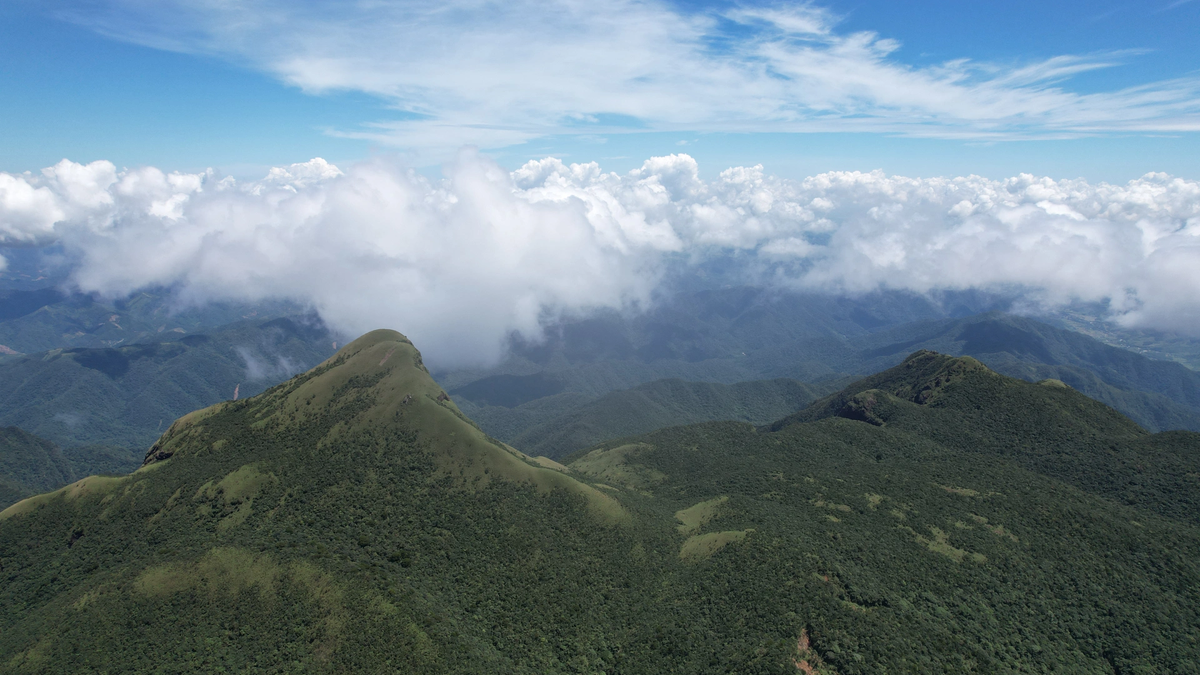





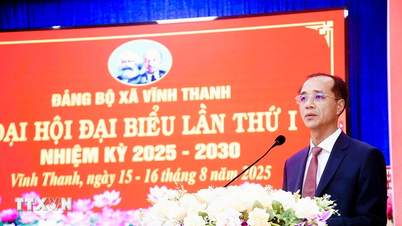

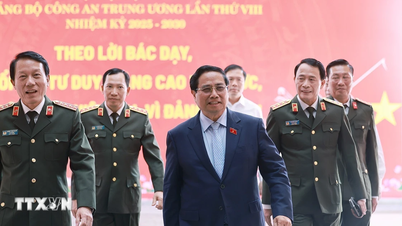


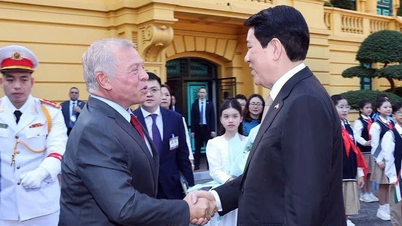
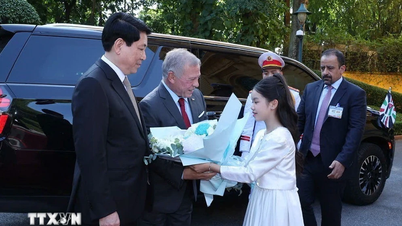




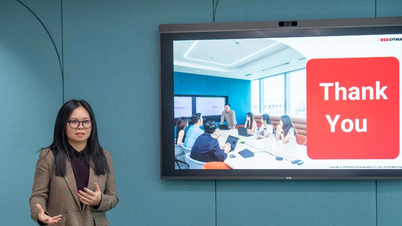
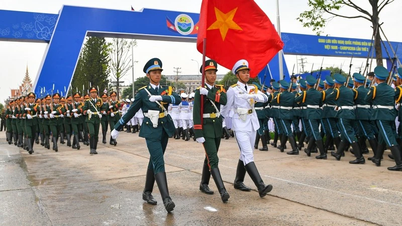
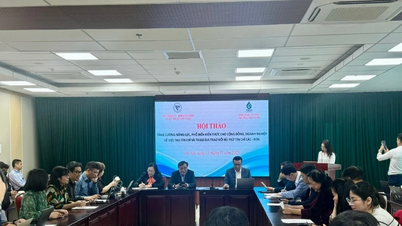
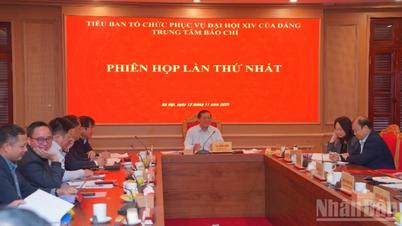
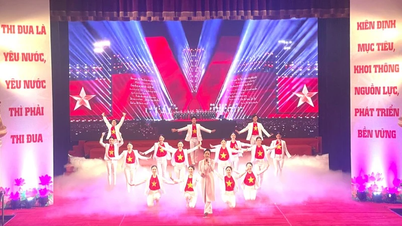
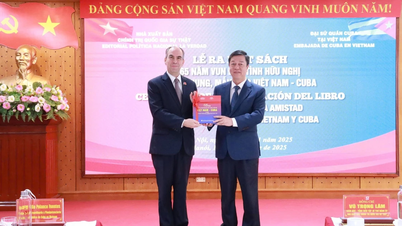





























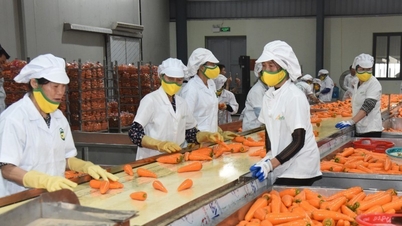






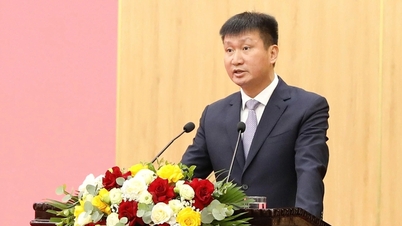



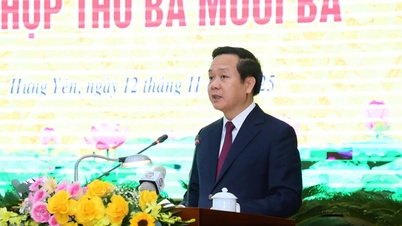




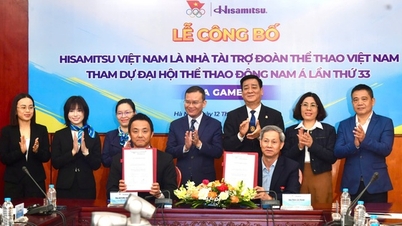
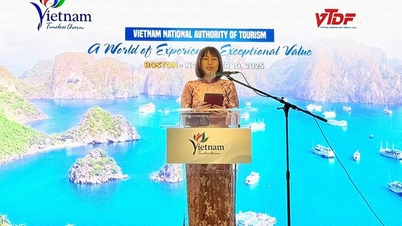

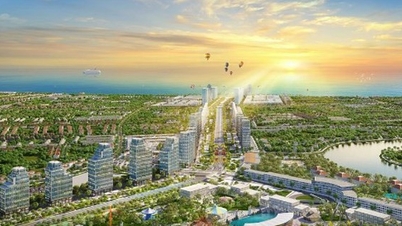
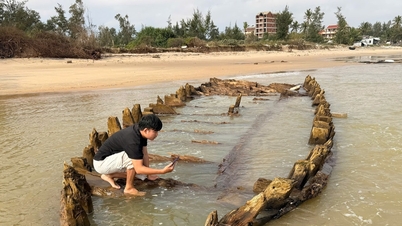

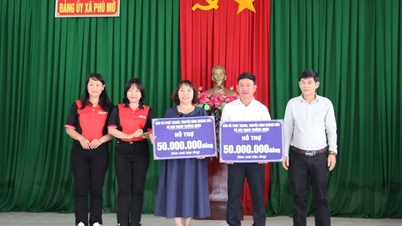
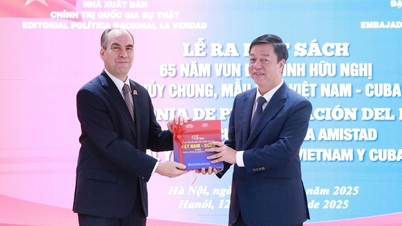

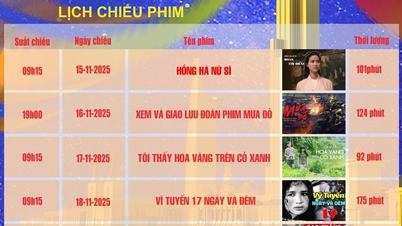
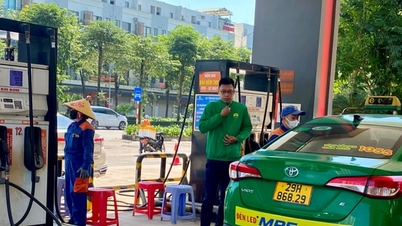

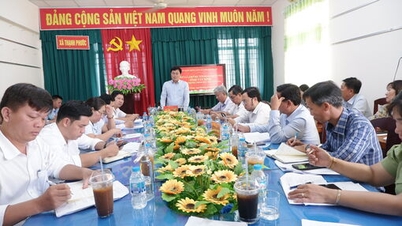






![Dong Nai OCOP transition: [Article 3] Linking tourism with OCOP product consumption](https://vphoto.vietnam.vn/thumb/402x226/vietnam/resource/IMAGE/2025/11/10/1762739199309_1324-2740-7_n-162543_981.jpeg)







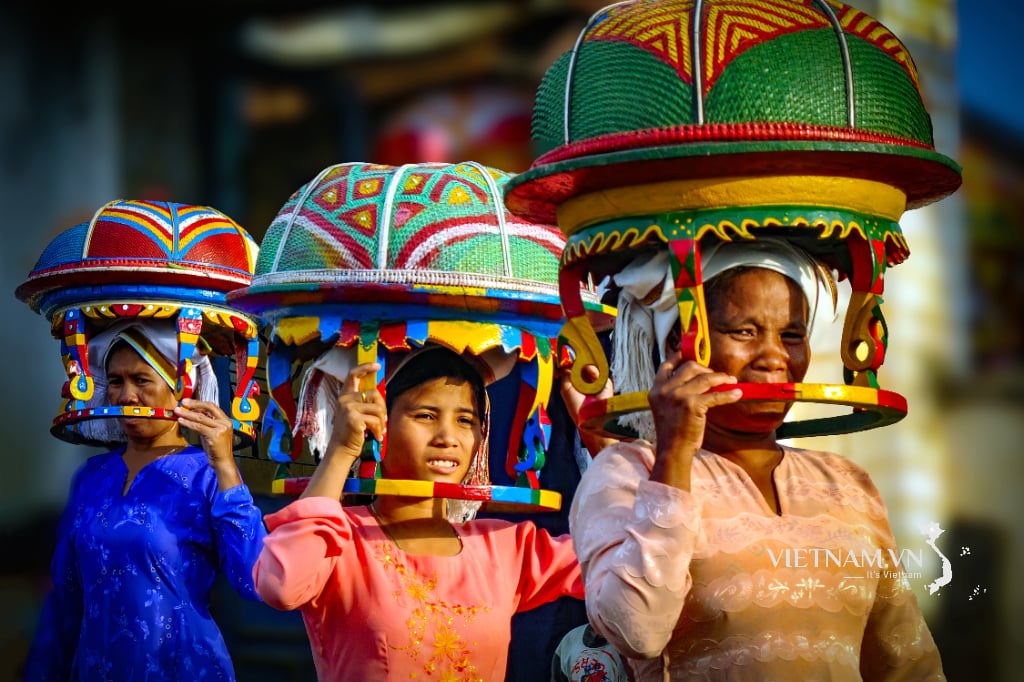
Comment (0)